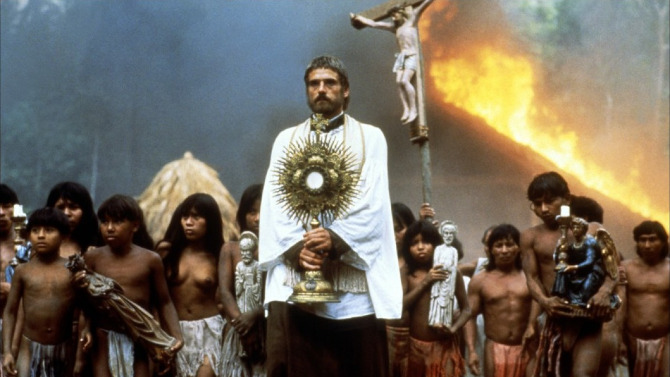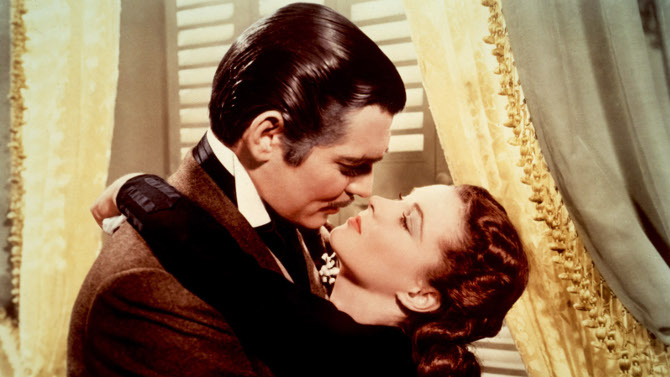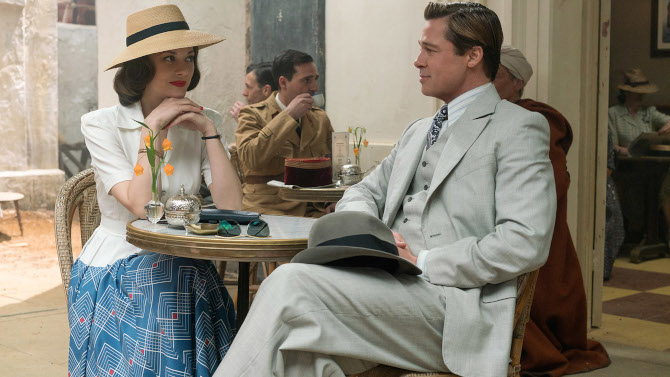
Déjà vu Dalliance
Channeling the mesmeric movies churned out by the studio system back in the 1930s and 40s, Allied (2016), directed by Robert Zemeckis, channels the likes of Morocco, Casablanca, Across the Pacific, Gilda, To Have and Have Not, and numerous others – attempting to find a spark from the classic themes of melodrama, romance, suspense and the epic nature of the annals of the cinematic past, with quite successful results. Set the year Casablanca and Across the Pacific were released – 1942, the story in fact starts in Morocco, with recently parachuted in Canadian spy Max Vatan (Brad Pitt) meeting up with another undercover agent, Marianne Beauséjour (Marion Cotillard), who will be pretending to be his wife.
-
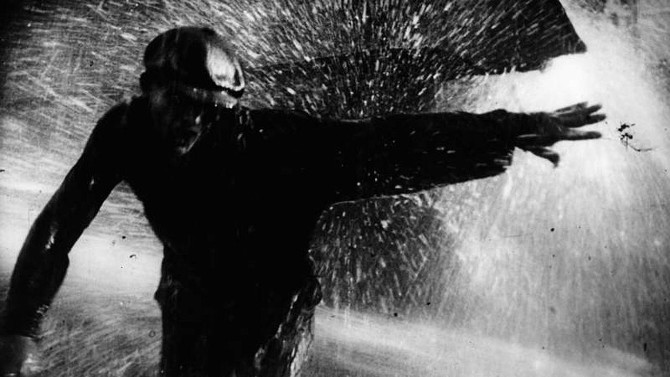
Strike… You’re Out!!!
StrikeJanuary 28, 2018An influential and innovative director that is sadly unknown to multiple generations of movie enthusiasts is Russian filmmaker Sergei Eisenstein, who would have turned one hundred and twenty a couple of weeks ago on January 10th. Best known for Battleship Potemkin (a laudable feature that will be reviewed here in due course), those in the know also point to his first full length motion picture, Strike, as being a vital piece of film history (it is often cited along with Orson Welles’ Citizen Kane as being one of the most audacious and impressive efforts by a first time filmmaker). Released in 1925 (the same year as Potempkin), though set in 1903, the aptly named picture, told in six parts, looks at a factory workers’ strike in pre-Revolutionary Russia. A fascinating study of early socialism versus capitalism from the Soviet perspective, the workers are close to their tipping point. . . looking for better hours, higher pay, less work for the child labourers and other such things. With the elite sensing their waning drive, they warn their spies on the inside to keep both eyes open for civil unrest – each of these men have an animalistic nickname, their personas connected to the beast they have been named for.
-
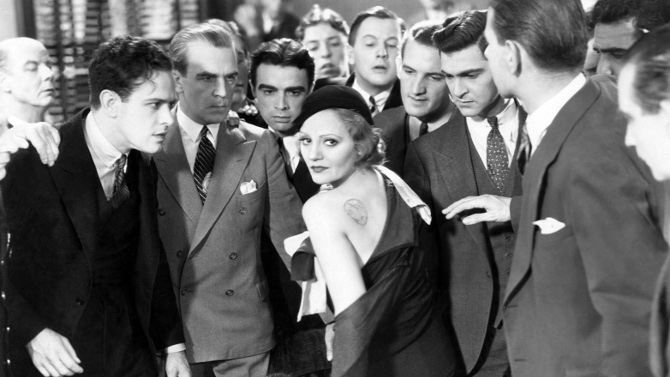
Morally Bankrupt
The CheatJanuary 12, 20181930's Hollywood films are rather intriguing. Though hit hard by the Great Depression (much like everywhere else), the escapism of movies still brought 60-75 million people into theatres each and every week (and, these numbers are for the worst times of the decade). The 30s also harkened in the era of the talkie – quickly putting an end to the silent film industry. The decade can also be split into two distinct periods: the five years before the Motion Picture Production Code (sometimes called the Hays Code) officially came into being (often referred to as the Pre-Code), and the five years after it was put into place – meaning that there was now a strict set of rules and regulations that were being strongly enforced. Both a curse and a blessing (many of the most talented directors found creative and visually clever ways to circumvent the Code – DeMille and Hitchcock are two that immediately come to mind), it did limit creative freedom in a major way, as sex, violence and language were severely censored – movies could no longer depict lacking morals (that is, unless the behaviour would be punished in the end).
-
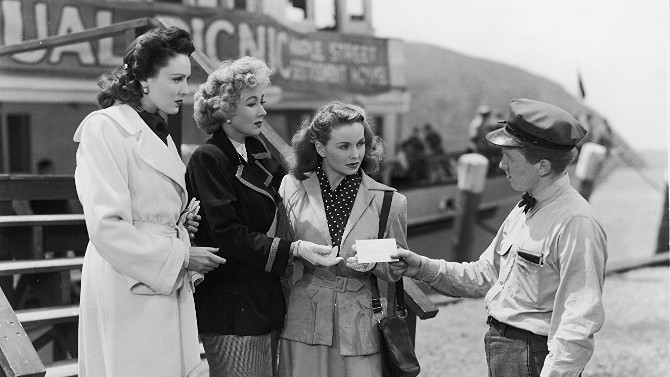
Poison Pen Letter
A Letter to Three WivesDecember 13, 2017As three volunteering women rush aboard a river-boat that takes children from underprivileged families on an annual daytrip, they receive an unexpected letter from one of their friends explaining that she has left their quaint little city behind with one of their beloved husbands in tow, putting each into a state of crisis. This is the suspenseful hook for the 1949 romantic drama A Letter to Three Wives, written and directed by Joseph L. Mankiewicz. The letter writer is voice over narrator Addie Ross (Oscar winner Celeste Holm) – the sultry, well connected dame is never shown, and the husband she has run off with is also left in the dark until almost the very end. Doing their duty as good citizens, Deborah Bishop (Jeanne Crain), Lora Mae Hollingsway (Linda Darnell), and Rita Phipps (Ann Sothern), three longtime friends, take the kids on the cruise and stop off to have a picnic, each flashing back (at a moment when they are not busy) to a time in which their significant other may have shown their true colours in regards to Addie.
-
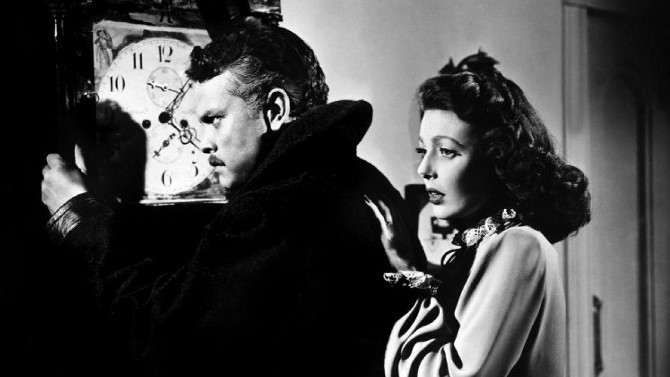
Strangers in the Night
The StrangerNovember 5, 2017It is Noirvember once again. . . the only time of the year when cynicism, doom-laden prospects and other dark themes should be sought out and applauded. The first film noir to grace Filmizon.com this November, 2017, is 1946's The Stranger. Directed by Orson Welles (his fourth feature, following the two classics Citizen Kane and The Magnificent Ambersons), this drama (with several film noir elements) follows Mr. Wilson (Edward G. Robinson – intriguingly, Welles originally wanted Agnes Moorehead portraying the lead as some sort of spinster lady), a sort of detective with the United Nations War Crimes Commission – or, to give his job a cooler name, he is basically a ‘Nazi Hunter’.
-
Star Pick with Guy Boucher
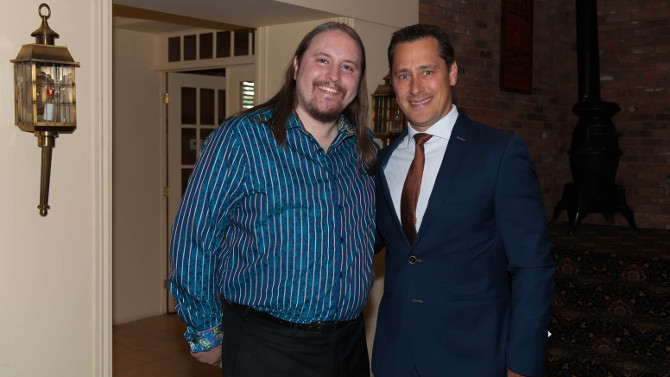 Mission StatementThe MissionOctober 10, 2017
Mission StatementThe MissionOctober 10, 2017It was an absolute pleasure sitting down with Guy Boucher just prior to the beginning of the 2017-2018 National Hockey League season. At a charitable event for The Children’s Treatment Centre, he was one of the roasters of Ottawa Senators’ assistant coach Marc Crawford, in what can only be termed a hilarious evening. With an impressive start to his coaching career, Boucher began in the Quebec Major Junior Hockey League, capping it off by winning the Paul Dumont Trophy in 2009 – awarded to the personality of the year, while with the Drummondville Voltigeurs. The success brought with it a head coaching job with the Hamilton Bulldogs in the American Hockey League, the affiliate of the Montreal Canadiens, where he took home the Louis A. R. Pieri Memorial Award (coach of the year) in 2010.
-
Star Pick with Michael Dante
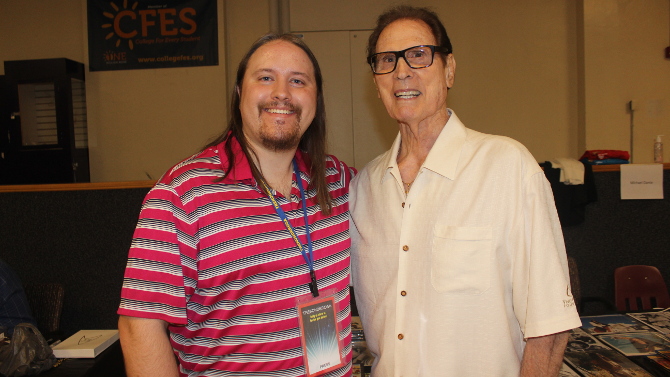 Gone with the Winds of ChangeGone with the WindSeptember 28, 2017
Gone with the Winds of ChangeGone with the WindSeptember 28, 2017It was lovely sitting down with veteran actor Michael Dante at Trekonderoga this past August. In the business for more than sixty years, it was not his original path in life. A top baseball player, he was signed by the Boston Braves out of high school. As fate would have it, he travelled a less expected path, finding his way, through interesting circumstances, into his first feature film, Robert Wise’s Somebody Up There Likes Me, in 1956 (with legendary names like Newman, Duvall and McQueen). Leading to an impressive career, Dante has graced the silver screen in such films as Westbound, Seven Thieves (Edward G. Robinson, Rod Steiger, Joan Collins, Eli Wallach), Kid Galahad (Elvis), The Naked Kiss (with famed director Samuel Fuller), Apache Rifles, Willard, as well as playing the title character in Winterhawk. . . this is just a small sampling of his work.

